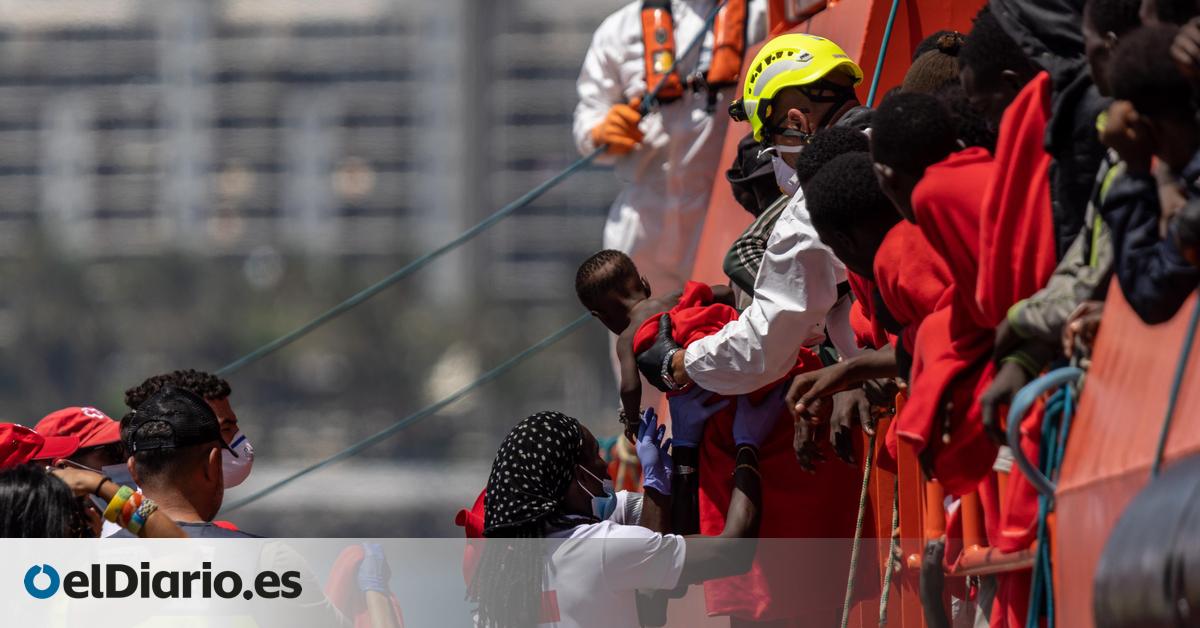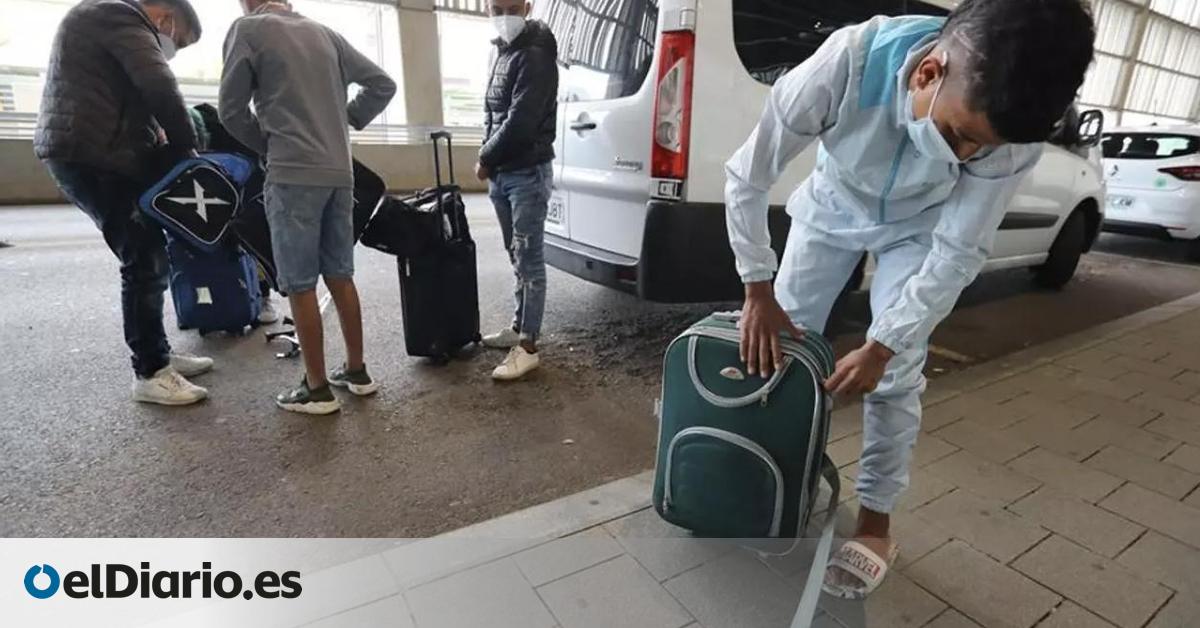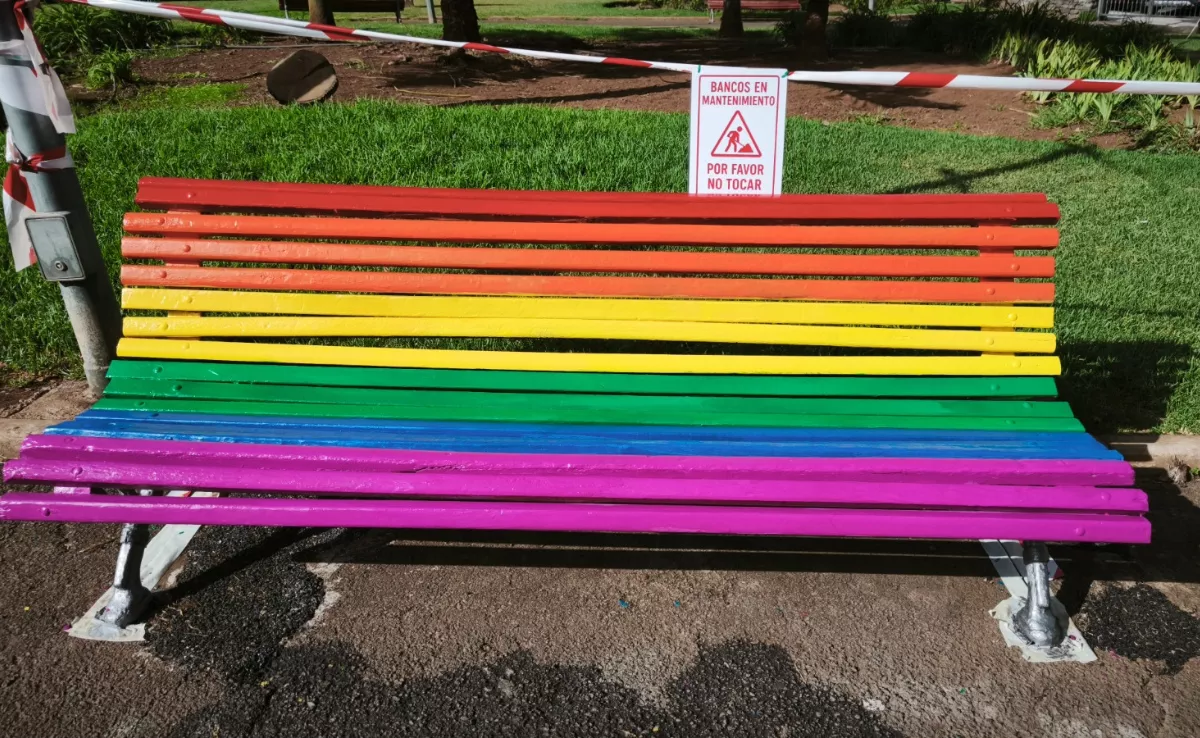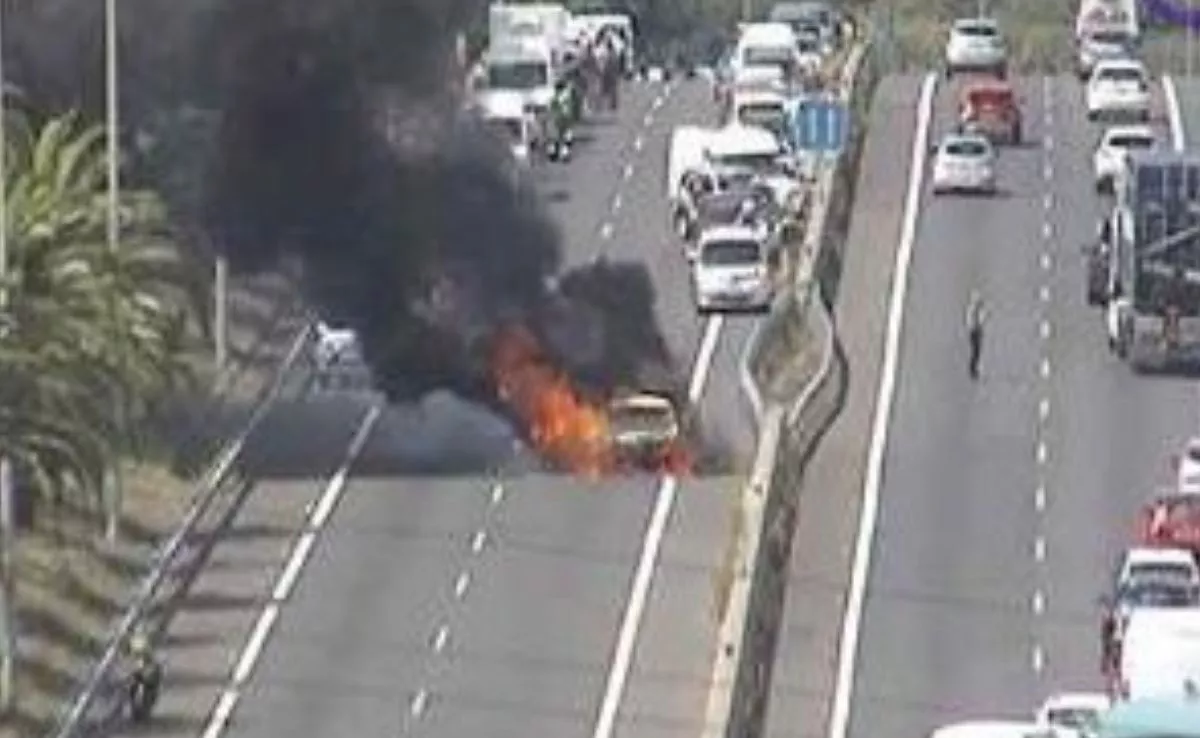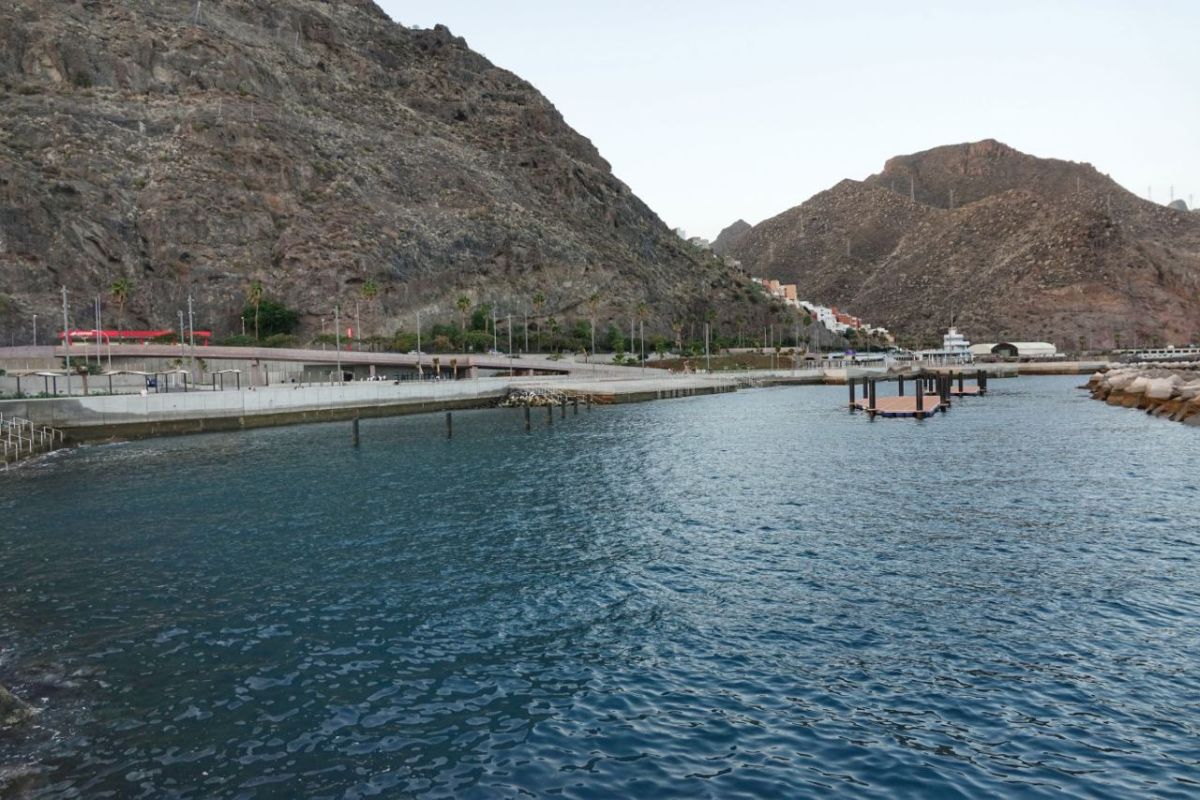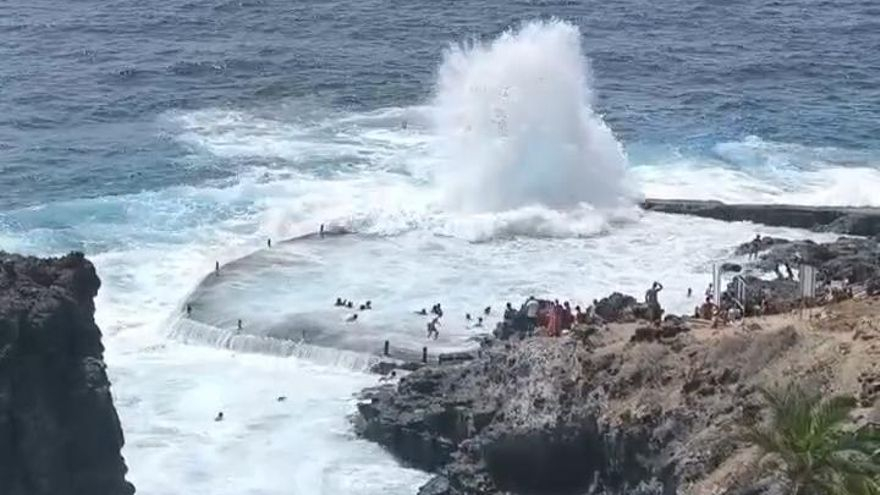- MUNA Celebrates Brazilian Culture at the Twelfth Edition of the MUSA Festival
- The Museum of Nature and Archaeology (MUNA) embarks on a journey to Brazil, bringing forth its most representative elements of nature, history, and culture through a diverse programme running from 2 to 26 September.
- Councillor José Carlos Acha highlights the festival’s trajectory, noting that “each year it attracts an increasing number of visitors, establishing itself on the international map of festivals of this kind.”
- The agenda includes exhibitions, open-air film cycles, musical performances, workshops, and conferences, among other activities.
MUNA Celebrates Brazilian Culture at the Twelfth Edition of the MUSA Festival
The Museum of Nature and Archaeology (MUNA) embarks on a journey to Brazil, bringing forth its most representative elements of nature, history, and culture through a diverse programme running from 2 to 26 September.
Councillor José Carlos Acha highlights the festival’s trajectory, noting that “each year it attracts an increasing number of visitors, establishing itself on the international map of festivals of this kind.”
The agenda includes exhibitions, open-air film cycles, musical performances, workshops, and conferences, among other activities.
The Museum of Nature and Archaeology of Tenerife (MUNA), under the Cabildo of Tenerife, is preparing for a new edition of the MUSA Festival, which this year marks its twelfth occurrence, solidifying its status as a cultural reference point on both a national and international level. This year, Brazil will be the focal country, offering a sensory and reflective journey through its art, music, cinema, gastronomy, thought, and creativity.
The Autonomous Organisation of Museums and Centres (OAMC) of the Cabildo is once again organising this cross-cultural event, which serves as a perfect opportunity to learn more about the traditions and customs of Brazil.
The MUSA Festival, now fully integrated into the cultural programme of MUNA, has established itself as a prominent space for promoting the identity and culture of various countries, thereby creating a bridge for dialogue and mutual enrichment with the Canary Islands. This multidisciplinary initiative invites attendees to discover Brazil’s cultural diversity, including its languages, sounds, colours, and mixed history, through a programme comprising film, live music, exhibitions, workshops, conferences, and gastronomic experiences.
The Councillor for Culture, Museums and Sports of the Cabildo of Tenerife, José Carlos Acha, emphasised the growing significance of the festival over the years: “It has successfully established itself on the international map of festivals of this nature, thanks to its ability to provide a cultural platform that not only promotes a country’s identity but also strengthens cultural and social relationships with the Canary Islands. This edition dedicated to Brazil reflects the vitality and richness of a fascinating culture and reaffirms our commitment to promoting intercultural dialogue and creativity.”
For several weeks, the MUNA will transform into a space for gathering, celebration, and reflection, allowing the public to immerse themselves in the diversity and richness of Brazilian culture, thereby solidifying the festival’s status as an essential event for art and culture lovers in all its forms.
PROGRAMME
The Musa Festival will commence on 2 September with the inauguration of the temporary exhibition ‘Espírito: a força invisível do Brasil’, curated by Carlos Castro Brunetto and Néstor Yanes Díaz, which will be on display at MUNA until 2 November.
The exhibition invites visitors to explore the multiple spiritual expressions that shape Brazilian identity, as a living synthesis of indigenous, African, European, and Asian heritages.
Through natural specimens and ritual, artistic, and ethnographic objects, the exhibition reveals how spirituality has served as a unifying force in Brazil’s history, enabling it to withstand and transform contexts of violence. The proposal is structured into four thematic areas: indigenous worldviews (Pindorama), the figure of Jesuit José de Anchieta (Abaré Anchieta), Afro-Brazilian syncretism (Aiyê-Orum), and contemporary creativity in dialogue with nature (Seiva).
On Wednesday 3 September at 19:00, MUNA will host the conference ‘Brasil: terra vermelha, mata verde, sangue negro’, presented by Carlos J. Castro Brunetto. In this session, the Professor of Art History at the University of La Laguna will reflect on how the spirituality of the Brazilian people has been the guiding thread of their culture, shaped by a challenging natural environment and by the often turbulent coexistence of various racial and social backgrounds. This conference is part of the Musa Festival’s series and is free to enter until full capacity is reached.
The following day, Thursday 4 September at 21:00, will launch the Brazilian open-air film cycle with the screening of ‘Estação Central’ (Central Station) in the Antonio Pintor courtyard of MUNA. Directed by Walter Salles and winner of the Golden Bear in Berlin, the film tells the heartfelt story of a retired teacher who helps a boy find his father in the interior of Brazil. The movie was nominated for an Oscar and is regarded as one of the great classics of contemporary Brazilian cinema.
On Friday 5 September at 21:00, MUNA’s auditorium will stage a concert by Filó Machado Band, an undisputed reference in Brazilian music. With over 60 years of experience and multiple Latin Grammy nominations, Machado will be joined by musicians from his family and artistic circle, including his son Sergio Machado on drums and grandson Felipe Machado on guitar and vocals. The performance will blend jazz, bossa nova, and samba, promising virtuosity and emotion.
On Saturday 6 September from 10:00, MUNA will host a day of musical workshops led by members of the Filó Machado Band. This masterclass is aimed at local musicians and enthusiasts, focussing on advanced techniques for mastering Brazilian rhythms such as samba, bossa nova, choro, and baião. Each instrument will have a specific space for training, and cultural exchange between Brazil and the Canary Islands will be encouraged.
The programme continues on Wednesday 10 September at 19:00 with the conference cycle and talk ‘Father Anchieta in the Jungles of Brazil’, presented by Lázaro Sánchez-Pinto. This lecture will discuss the figure of the Canarian-Brazilian Jesuit José de Anchieta as a cultural mediator in 16th-century Brazil, highlighting his role in the evangelisation process and his influence on the country’s spiritual history.
On Thursday 11 September at 21:00, the film “Cidade de Deus” will be screened as part of the open-air film cycle. Directed by Fernando Meirelles, this film starkly portrays the violence in the favelas of Rio de Janeiro. It is one of the most influential films in Brazilian cinema and was nominated for four Oscars.
On Friday 12 September at 21:00, music returns to MUNA with a concert by the group ‘Maracatú 4uno’. This ensemble blends Afro-Brazilian rhythms such as maracatu and ciranda with contemporary sounds, offering a musical experience rooted in strong tradition and high theatrical impact.
On Saturday 13 September at 11:00, MUNA will host the ‘Indigenous Graphics’ workshop led by Glauce Lima de Oliveira. This activity will allow participants to explore the visual expressions of Brazil’s indigenous peoples, where art serves as a symbolic language, spiritual bond, and a tool for cultural resistance.
On Wednesday 17 September at 19:00, a discussion forum on ‘Nutrition, Sport, and Health’ will take place, featuring Marcelo “Marcelinho” Huertas, a Brazilian-Italian basketball player and point guard for La Laguna Tenerife in the ACB League. He will be joined by Conrado Rodríguez-Maffiote Martín, director of the Canary Institute of Bioanthropology, and Conrado Rodríguez Jaubert, physician for La Laguna Tenerife, who will discuss the relationship between nutrition, athletic performance, and health from both practical and scientific perspectives.
The summer film cycle will continue on Thursday 18 September at 21:00 with the screening of ‘Seven Prisoners’, directed by Alexandre Moratto and co-written by Moratto and Thayná Mantesso. This 2021 Brazilian drama, lasting 93 minutes, addresses modern slavery, human trafficking, and forced labour through the story of Mateus, a young man who travels to São Paulo to support his family and ends up trapped in an exploitative labour system. Produced by Fernando Meirelles and Ramin Bahrani, the film features performances from Christian Malheiros, Rodrigo Santoro, Bruno Rocha, and Vitor Julian, showcasing photography by João Gabriel de Queiroz and music by Pedro Osuna. Officially selected in the Orizzonti Extra section of the Venice Film Festival, “Seven Prisoners” offers a powerful critique of the labour exploitation system in Latin America.
The public can enjoy a new concert on Friday 19 September with the performance of Mônica Salmaso & Guinga at 21:00 in the museum’s auditorium. This collaboration between one of the most recognised voices in Brazilian music and the renowned guitarist and composer Guinga promises an intimate and refined evening, blending tradition and musical sophistication.
On Saturday 20 September at 11:00, MUNA presents the ‘Brazilian Literature’ workshop, led by Izaskun Legarza. This session will explore works by key authors such as Machado de Assis, Jorge Amado, and Clarice Lispector, encouraging critical reading and dialogue around the country’s literary diversity.
The conference cycle will continue on Wednesday 24 September at 19:00 with María Fátima Hernández presenting the conference ‘Brazil: Timeless Perception of a Fascinating Nature’. The talk will analyse the spiritual and symbolic relationship that the Brazilian people maintain with their natural environment, and how this influence has shaped their culture, art, and collective imagination.
On Thursday 25 September at 21:00, the Brazilian film ‘Bacurau’, directed by Kleber Mendonça Filho and Juliano Dornelles, will be screened, featuring a script by the same authors. Lasting 131 minutes, the film combines drama, thriller, and science fiction to tell the story of a small village in the Brazilian sertão that disappears from maps and is attacked by mysterious outsiders, offering a dystopian fable with elements of western, gore, and social criticism. The film stars Sônia Braga, Udo Kier, Bárbara Colen, and Thomas Aquino, showcasing photography by Pedro Sotero and music by Mateus Alves and Tomaz Alves Souza. “Bacurau” has received international recognition, winning the Jury Prize at the Cannes Film Festival as well as several awards at the Sitges Film Festival, including Best Film, Direction, and Editing.
Dance and music will return on Friday 26 September at 21:00 in MUNA with the show Dance + Sounds of Pindorama. Brazilian artist Natalia Fernandes, with her piece ‘Carnival is Not Joyful’, explores a new relationship between her body, choreography, and audience, transforming the piece into an intimate concert suitable for unconventional spaces like the museum, evoking a carnival-like closeness.
‘Sounds of Pindorama’, hosted by DJs Víctor Carballeira and Kali, invites the public to enjoy a global sonic journey. Víctor Carballeira, a producer, DJ, and cultural manager, is known for blending organic rhythms and industrial sounds with percussions and melodies from various eras, creating atmospheres for dancing and enjoyment. DJ Kali, on the other hand, shares her passion for music through a carefully curated selection of genres from around the world, including afrobeat, Balkan rhythms, ethno-techno, Brazilian, and tropical music, delivering an intense and engaging experience that connects the audience with the diversity of danceable sounds across the globe.
On Saturday 27 September at 11:00, a Brazilian percussion workshop with Vanderson Baobá will take place. Participants will have the opportunity to explore traditional rhythms such as samba-reggae and capoeira, as well as experiment with typical instruments and learn about their historical and social roots.
Furthermore, from 23 September to 30 November, the Documentation Centre of the Canary Islands and America (CEDOCAM) will host a documentary exhibition ‘Destination… Brazil. A Country of Diversity, History, and Culture’. This exhibition offers a visual and textual journey through the historical, linguistic, and social heritage of the South American country, running parallel to the activities of the Musa Festival.
All activities are free until full capacity is reached, so those interested in attending can consult the details of the programme on the Tenerife Museums website (click HERE).




